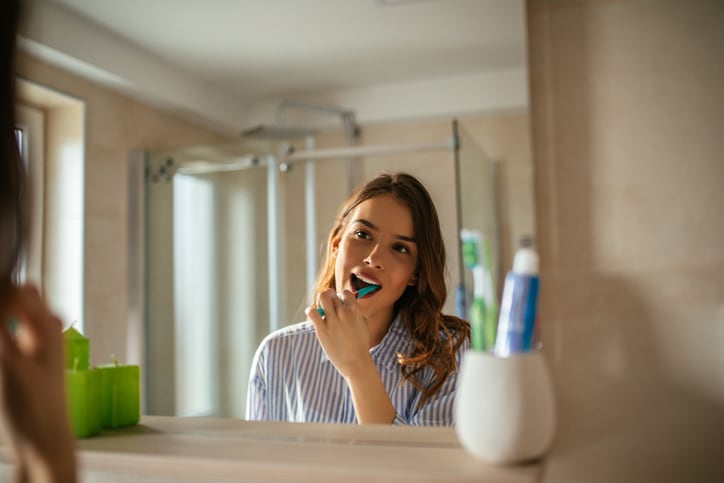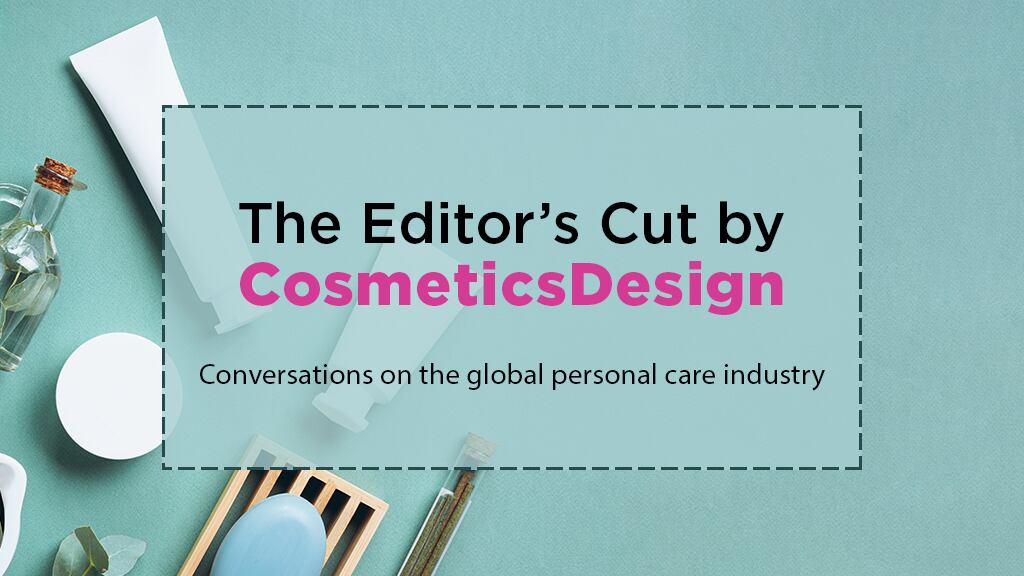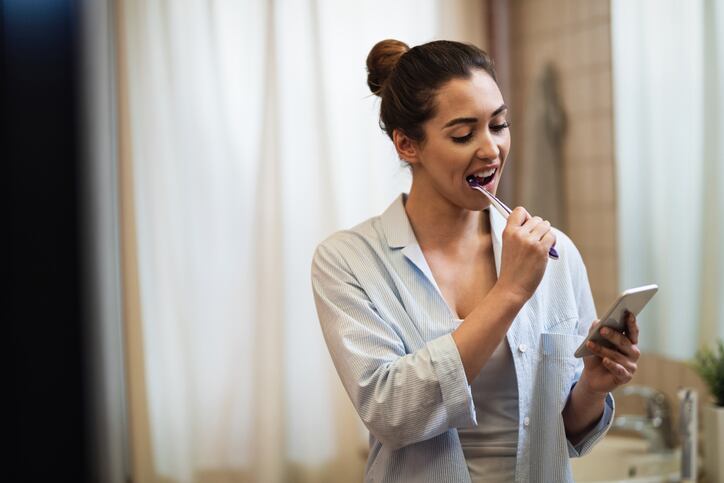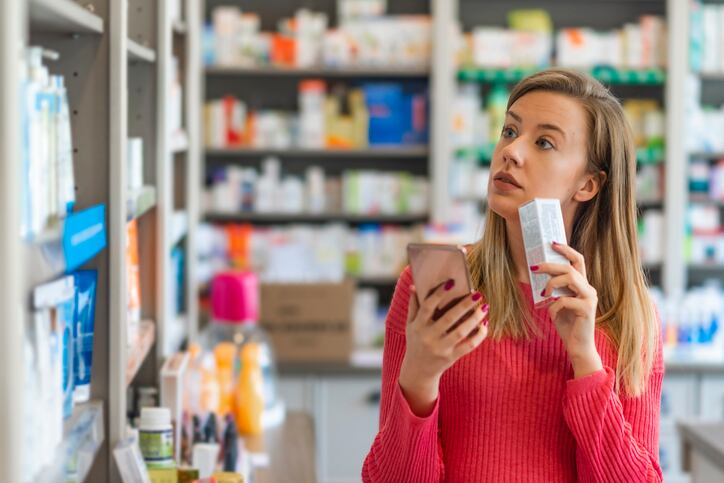Six months ago, when the COVID-19 pandemic was in its first global peak, CosmeticsDesign-Europe looked at how first quarter (Q1) financial results compared across the beauty industry’s biggest players. Analysis showed categories like hand soap, oral care and skin health had weathered the storm better than makeup and premium travel retail items – overall a very mixed bag.
These beauty giants had now all reported third quarter (Q3) earnings, following worldwide retail lockdowns, supply chain disruption, and seismic shifts in consumer shopping and consumption, so we take another look at how these latest financials compare between the world’s beauty giants.
Oral care and soap power – Colgate-Palmolive, Johnson & Johnson and P&G sit strong
Two of the world’s largest personal care companies, Colgate-Palmolive and Johnson & Johnson, again reported net sales growth for the third quarter (Q3) of 2020. Both companies had seen sales lift in Q1 2020, though Johnson & Johnson net earnings had plummeted in between, during Q2.
Colgate-Palmolive totted up net sales of €3.55bn ($4.15bn) for Q3 2020, up 5.5% on the previous year. Total net income for the quarter sat at €596m ($698m), up 27% on the previous year.
The company’s European division – which represented 17% of total company sales – saw the largest rise in net sales for the quarter, up 17% with particularly strong organic growth in France, Denmark and the Netherlands.
Noel Wallace, chairman, president and CEO of Colgate-Palmolive, said: “While we continue to see elevated demand in personal care and home care related to the virus, premium innovation is also driving growth across all of our product categories.”
Colgate-Palmolive reported particularly strong growth across oral care for Q3, owing to premium innovations like hum by Colgate, Colgate Optic White Renewal and its Colgate Optic White overnight teeth whitening pen. Innovation under its Protex soap brand – the launch of a flaxseed-based antibacterial formula – had also bolstered growth.
Johnson & Johnson also reported a strong Q3 despite the crisis. The personal care major pulled in sales of €17.9bn ($21bn) for the quarter, up 1.7% on the previous year – results that drew it out of its Q2 plunge. Total net earnings for Q3 were up 3.5% to €5bn ($5.9bn) after adjustment to exclude tax intangible asset amortization expense and special items.
Thibaut Mongon, executive vice president and worldwide chairman for consumer health at Johnson & Johnson, said: “In today’s environment, consumers globally have a heightened interest in personal health and hygiene, and it’s driving high demand for efficacious, trusted solutions backed by science, like those offered by Johnson & Johnson.”
Like Colgate-Palmolive, Johnson & Johnson reported particularly strong growth in oral care, with Listerine mouthwash up 10.8%. Results across its skin and beauty categories had been “more nuanced”, it said, with the crisis creating a negative impact on sun care and makeup removers but creating increased demand for body wash, body lotions and premium hair care.
In Q3, another worldwide personal care major Procter & Gamble joined Colgate-Palmolive and Johnson & Johnson in the group of companies standing financially strong during the pandemic.
Procter & Gamble reported a net sales rise of 9% for its first quarter (Q1) of fiscal 2021 - reported at the same time as Q3s - pulling in €16.2bn ($19.3bn). Results featured a 14% rise in fabric and home care; 11% rise in health care; 7% rise in beauty; 5% rise in grooming and 3% rise in baby, feminine and family care. Six months ago, net sales had been down in beauty and grooming.
Jon Moeller, vice chairman, COO and CFO of Procter & Gamble, said the company had “built strong momentum leading up to the crisis” which had helped it fare well and in recent months it had “raised the bar on all aspects of superiority, product packaging, consumer communication, retail execution and value” to tackle the challenge of COVID-19.
P&G reported particularly strong results across its beauty, skin and personal care divisions, led by hand soaps and hand sanitisers and premium launches under its Olay brand. Personal cleansing had seen strong growth in the quarter and hair care sales also continued to rise, it said.
Makeup for losses – L’Oréal reports global sales lift following declines
L’Oréal this time also joined the rung of personal care majors reporting strong Q3 results. The beauty major totted up €7.03m in sales for the quarter, up 1.6% on the previous year, with sales up 7.7% in Eastern Europe but down 2.5% in Western Europe. This comes after a first half (H1) of global declines.
Jean-Paul Agon, chairman and CEO of L’Oréal, said: “After a first half marked by a crisis of supply, linked to the closure of points of sale around the world, L’Oréal put everything in place, as early as June, to stimulate demand for its brands and products and to re-engage all its business drivers.”
L’Oréal said these “major recovery plans” had enhanced sales across its Consumer Products division in Q3, with strongest growth seen in its Active Cosmetics division which posted a 29.9% like-for-like sales growth where CeraVe was the top performing brand. Overall, skin care had performed particularly well, it said, but makeup continued to struggle in Europe.
Shiseido – previously grouped with L’Oréal for Q1 losses – also made some sort of recovery in Q3, reporting €99.4m (¥12.3 billion) in operating profit, up from operating profit losses of €80m (¥9.9 billion) in the second quarter (Q2). The extent of recovery, however, was unclear because the Japanese major reported Q3 earnings as first nine-months results without a financial breakdown of its latest quarter.
Amorepacific – also previously grouped with L’Oréal for Q1 losses – did not report the same recovery for Q3. The APAC beauty major reported a revenue drop of 22.9% and an overall net profit plunge of 71.3% for the quarter compared to Q3 2019.
Skin care suffering – Unilever and Beiersdorf sales down
Two other significant beauty players, Unilever and Beiersdorf, had not seen sales lift in Q3.
Unilever reported a net earnings dip of 2.4% to €12.9bn for Q3, with total sales also down 1.3% in Europe versus 2019. Net sales were also down 4.1% in its largest division – beauty and personal care. These Q3 results came despite the personal care major reporting a 10% surge in net income for the first half (H1) of the year.
Unilever did, however, report underlying sales growth of 4.4% for Q3, 3.9% of which was volume based.
Alan Jope, CEO of Unilever, said there was clear “volume-led growth” which proved the company’s resilience. “...The environment we are operating in will remain unpredictable in the near term, so we will continue to maintain the speed and agility of our response. Our focus remains volume-led competitive growth, delivering absolute profit and free cash flow,” he said.
Unilever said whilst demand for hand hygiene products remained high – Dove and Lifebuoy had driven much of the underlying sales growth during Q3 – the level of demand was lower than in Q2. Skin care and deodorant categories also both declined in the quarter.
Beiersdorf also reported a total sales drop for Q3, down 8.5% on the previous year. Sales in its consumer business unit were down 8.9% at €4.2m with every global region reporting declines bar North America.
Stefan De Loecker, CEO of Beiersdorf, said that despite this “difficult” environment, the company had managed to win market share in all skin care categories.
Beiersdorf said dermocosmetics had proven particularly resilient in Q3, with sales up across all global regions for its Eucerin and Aquaphor brands. For Q3, much like previous quarters, its luxury La Prairie brand continued to suffer, with sales down 16.9%.
De Loecker said Beiersdorf had now started to overhaul La Prairie’s positioning in Europe, aiming to close more than 1,000 doors that had “failed to meet the brand’s exclusive standards” – a move to be completed by 2021.




